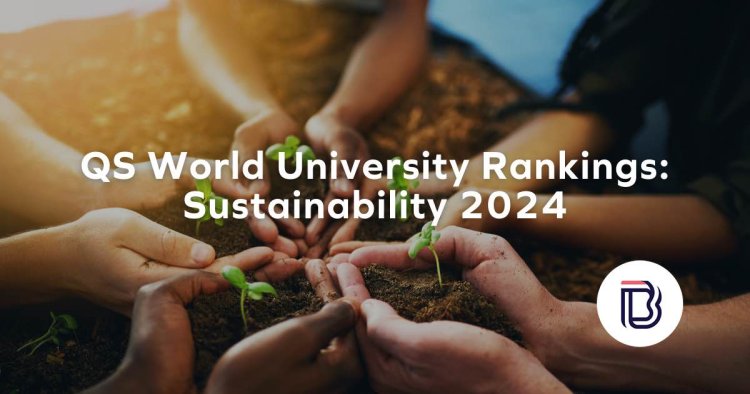QS Sustainability Rankings: Shaping a Sustainable Future in Higher Education
Discover the QS Sustainability Rankings: methodology, impact, trends, and insights into universities' sustainability efforts globally. Learn how these rankings influence institutional strategies, student choices, and global sustainability initiatives, promoting environmental stewardship in higher education.

Introduction to QS Sustainability Rankings
The QS Sustainability Rankings represent a significant shift towards evaluating universities not only based on academic excellence but also on their environmental impact and sustainability practices. Launched to meet global demands for corporate social responsibility and environmental stewardship, these rankings highlight institutions' efforts in promoting sustainability across various domains, from campus operations to research initiatives and community outreach.
History and Evolution
The history of QS Sustainability Rankings dates back to the increasing recognition of universities' role in addressing global environmental challenges. QS responded by developing a rigorous methodology that assesses universities' sustainability commitments and achievements comprehensively. Over the years, these rankings have evolved to encompass broader aspects of sustainability, reflecting ongoing advancements in environmental sciences, social responsibility, and sustainable development goals.

Methodology Explained
The QS methodology for ranking universities on sustainability integrates multiple indicators to evaluate institutional performance:
- Environmental Impact (Weightage %): Measures the university's efforts to reduce its environmental footprint through energy efficiency, waste management, and sustainable practices.
- Social Responsibility (Weightage %): Assesses the university's engagement with local communities, ethical governance, and contributions to social justice and equity.
- Governance (Weightage %): Evaluates the university's leadership commitment to sustainability, transparency in policies, and integration of sustainability into strategic planning.
- Research (Weightage %): Analyzes the university's research output and contributions to sustainability-related fields, including environmental sciences, renewable energy, and sustainable agriculture.
- Education (Weightage %): Reviews the university's curriculum and educational programs focused on sustainability, preparing students to become future leaders in environmental stewardship and sustainable development.
Impact and Importance
The QS Sustainability Rankings play a crucial role in driving institutional change and fostering global collaboration on sustainability initiatives. For universities, achieving high rankings enhances their reputation as leaders in environmental sustainability, attracting students, faculty, and research funding aligned with sustainability goals. These rankings also empower students and stakeholders to make informed decisions about supporting and engaging with environmentally responsible institutions.
Trends and Insights in Sustainability
Analysis of QS Sustainability Rankings reveals significant trends and insights shaping higher education's approach to sustainability:

- Integration of Sustainability Across Disciplines: Universities are increasingly embedding sustainability principles into diverse academic disciplines, from engineering and business to social sciences and humanities.
- Campus Sustainability Initiatives: Institutions are implementing innovative practices such as renewable energy adoption, carbon neutrality commitments, and sustainable building designs to minimize environmental impact.
- Research Innovation: Universities are expanding research initiatives focused on climate change mitigation, biodiversity conservation, and sustainable technology development to address global environmental challenges effectively.
Criticisms and Controversies
Despite their positive impact, QS Sustainability Rankings face criticisms related to methodology complexity, data comparability across diverse regions, and the potential for greenwashing. Critics argue that subjective indicators and self-reported data may limit the rankings' accuracy in assessing true sustainability performance. Addressing these concerns is essential for enhancing transparency and credibility in evaluating universities' sustainability efforts.
Future Directions and Innovations
Looking ahead, QS aims to refine its Sustainability Rankings methodology to capture evolving sustainability practices and global challenges effectively. Future innovations may include incorporating new metrics that measure universities' contributions to climate adaptation, social equity, and sustainable development goals. Advances in digital technology, data analytics, and interdisciplinary collaboration are expected to drive continuous improvement in assessing and promoting sustainability leadership in higher education.

Conclusion
In conclusion, the QS Sustainability Rankings are instrumental in promoting sustainability leadership and environmental stewardship among universities worldwide. By understanding their methodology, impact, and evolving trends, stakeholders can champion transformative change in higher education, fostering a sustainable future for generations to come. Embracing the insights from QS Sustainability Rankings enables universities, students, and communities to collaborate effectively towards achieving global sustainability goals and creating a more resilient and equitable world
What's Your Reaction?





















